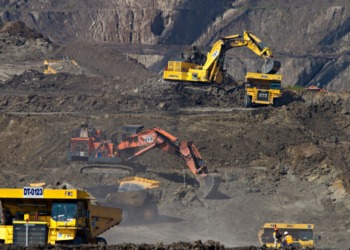Over the past five days, British Columbia, a province in Canada, faced an almost three-fold increase in the number of deaths as temperatures soared to above 45°C for three days straight, reaching a record-breaking 49.6°C on Tuesday.
“Since the onset of the heat wave late last week, the BC Coroners Service has experienced a significant increase in deaths reported where it is suspected that extreme heat has been contributory,” said the British Columbia Coroners service on Monday.
At the minimum, 486 people died over the course of five days compared to the average of 165 deaths that normally occur during this time frame. With the reason and manner of the deaths yet to be confirmed, Coroners is now collecting information to conclude whether the high temperature was a contributor.
Related Articles: 6 Graphics Explain the Climate Feedback Loop Fueling US Fires | Climate Crisis: Why Should We Panic Now
Around 124 miles north of Vancouver, Lytton residents evacuated as a wildfire took form, causing flames to spread across the town in only 15 minutes. Lytton Mayor Jan Polderman issued an evacuation order on Wednesday, saying that “the whole town is on fire.”
A horrific time for those who call #Lytton home. Homes completely destroyed, businesses up in flames in just a few minutes. The hospital is apparently destroyed, along with the fire station and Main Street. People left with just the clothes on their back. Heartbreaking @NEWS1130 pic.twitter.com/RXVGEQI3rD
— Tarnjit Kaur Parmar (@Tarnjitkparmar) July 1, 2021
The heat has also led to precautionary measures throughout the province, with schools and universities shutting down on Monday.
Chief Coroner Lisa Lapointe said in a statement that contact with environmental heat can prompt severe or lethal consequences, predominantly amongst the older population, infants, young children, and people suffering from chronic illnesses.
Senior Research Scientist at Environment and Climate Change Canada Greg Flato said that rising temperatures in the wider Pacific Northwest, which typically has higher levels of rain than sun, were caused by a high-pressure system that had not moved. According to AccuWeather, this system is “a clockwise flow of dry, sinking air that typically builds into a region behind a departing storm system.”
Until last week, temperatures in Canada had never passed 45°C. This previous temperature record, observed in Saskatchewan in 1937, has now been broken for three days straight by as much as 4.6°C.
Editor’s Note: The opinions expressed here by Impakter.com columnists are their own, not those of Impakter.com — In the Featured Image: A heat wave in Montreal, Canada. Featured Photo Credit: Nicolas Longchamps.










